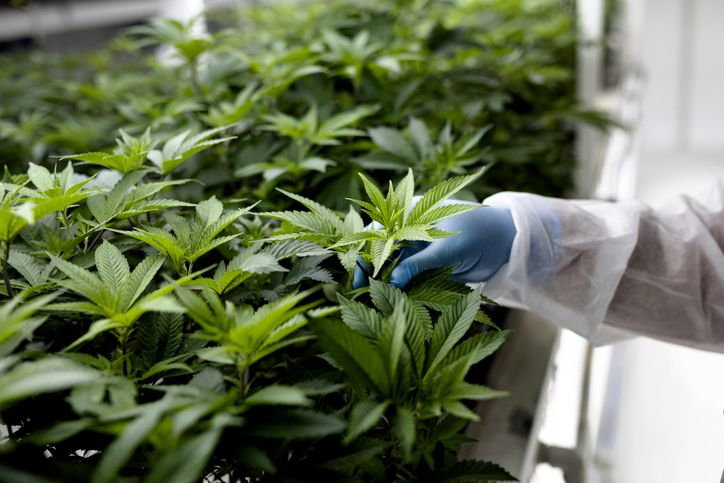State-Level Tax Relief Provides Boost to U.S. Cannabis Industry Amidst Federal Uncertainty
LOS ANGELES– In a much-needed respite for the U.S. cannabis industry, a growing number of states—20 in total—have passed legislation to exempt businesses from the burdensome Section 280E of the federal tax code. This move allows cannabis companies to deduct business expenses from their state income taxes, even though they remain illegal at the federal level.
The potential savings resulting from these state-level exemptions could be substantial, particularly for larger operators, depending on the corporate tax rates of each state. However, it is important to note that these exemptions do not apply to federal taxes, meaning businesses are still unable to deduct expenses for federal income tax purposes.
Section 280E, a provision in the IRS tax code, prohibits cannabis businesses from taking standard business deductions due to the federal classification of cannabis as a Schedule 1 drug under the Controlled Substances Act. To address this issue, 16 states that have legalized adult-use cannabis have now passed legislation to decouple companies from Section 280E, according to the Marijuana Policy Project (MPP), a Washington DC-based advocacy group.
However, not all states have implemented these exemptions. Alaska, Arizona, Maine, Nevada, and Washington state have yet to exempt the adult-use cannabis industry from Section 280E, and Rhode Island’s efforts to do so have stalled in a legislative committee, as reported by Karen O’Keefe, director of state policies at MPP. Additionally, medical cannabis operators in Arkansas, Hawaii, Louisiana, Maine, and Washington DC are also exempt from Section 280E under state tax law.
O’Keefe emphasized that when states initially introduced licensed marijuana programs, there was an expectation of substantial tax revenue. However, she noted that, for the first time in 2022, states collected less tax revenue compared to the previous year, signaling a need for recalibration. O’Keefe explained that challenges arising from federal prohibition, overtaxation, and overregulation have made it increasingly difficult for cannabis businesses, even well-capitalized ones, to turn a profit.
Recognizing the unsustainability of current tax rates and the potential for reduced tax revenue if businesses shut down, legislators are now passing exemptions to enable the cannabis sector to deduct business expenses, mirroring other industries. The benefits of these exemptions vary from state to state, depending on the unique corporate tax rates in each jurisdiction.
Matthew Bergman, a certified public accountant and senior partner at accounting and consulting firm CJBS, highlighted that Nevada, for instance, does not impose corporate tax, while Illinois, which decoupled from Section 280E in May, maintains a 9.5% corporate tax rate across the board. Consequently, companies operating in Illinois may witness substantial tax savings, amounting to approximately one-third of their tax burden.
However, the process of decoupling from Section 280E presents challenges in terms of bookkeeping due to inconsistencies among state rules. Joshua Hamlet, an associate in tax at the New York-based law firm Akerman, cautioned that different states may apply different deduction rules. For example, while New Jersey allows deductions for both corporate business tax and gross income tax, other states may not permit such deductions.
Aaron Miles, the chief investment officer at Verano Holdings, a Chicago-based marijuana multistate operator, expressed appreciation for the shift towards tax relief at the state level. However, he emphasized that small businesses and social equity licensees stand to benefit the most from these measures. Miles highlighted how Verano has leveraged its cash flow for growth, but he acknowledged the difficulties faced by smaller players without access to banking services and capital, exacerbated by overtaxation.
For Verano, which operates in 13 states, the impact of Section 280E is reflected in high state and federal income tax payments. As part of their strategy, Verano pays state income taxes promptly but delays federal income tax payments, as the associated penalties and fees are lower than borrowing costs. Miles explained that deferring taxes within a 12- to 18-month timeframe allows the company to save money. Verano is set to pay approximately $100 million in taxes this year, with a remaining balance of $250 million in taxes owed.
However, industry observers anticipate more significant changes at the federal level. According to an analysis by Oregon-based Whitney Economics, the cannabis industry paid an estimated $1.8 billion more in federal taxes than non-cannabis businesses in 2022, with projections of this figure reaching $2.1 billion this year. The industry and investors eagerly await progress from President Joe Biden’s administration, which has announced a review of marijuana’s federal classification and the possibility of descheduling or rescheduling it.
O’Keefe of the Marijuana Policy Project believes that cannabis should be descheduled altogether, but if rescheduling were to occur, it should be to Schedule 3 or lower. Rescheduling to Schedules 1 or 2 would not address the issue presented by Section 280E. As the industry navigates this complex landscape of tax regulations, businesses are hopeful for meaningful reforms that could provide long-term stability and equitable treatment for cannabis companies across the United States.




































